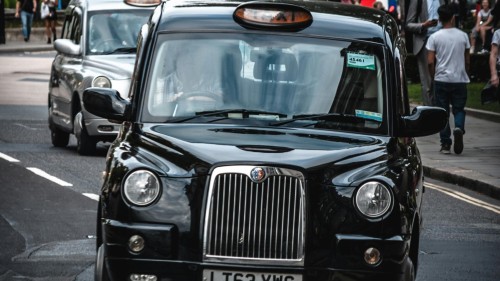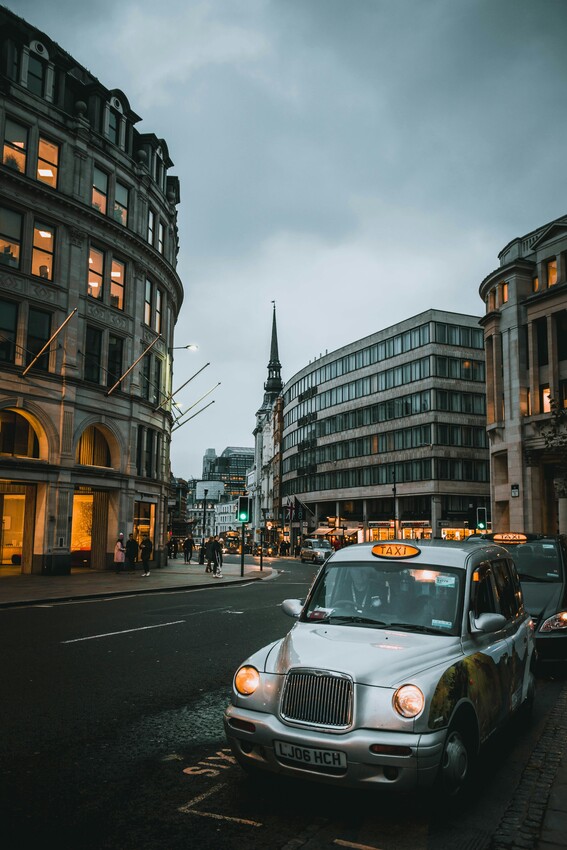Bolt wins its appeal at UTT - TOMS can apply to on-demand single services by non-tour operators

posted 24th March 2025
In what is hopefully the first bit of good news in 2025 for TOMS, Bolt has won its appeal at UTT. The case concerned the provision of “on demand” taxi services and questioned whether TOMS could apply to these services where provided by a business who was not itself a "tour operator" and where provided as a standalone service. It also questioned the concept of material alteration again.
My assessment of this case is that I see where HMRC are coming from (based on the laws of the 1980s), but that they need to get up to speed with the 21st Century...
Bolt provided "on demand" taxi services in a similar way to Uber. Its taxi drivers are all self-employed individuals who sell their services (including the car, fuel and themselves as drivers) to Bolt for onwards resale to the individual using the services. Bolt itself is a platform which provided the booking facility and a small amount of ancillary material such as an info guide and blog of destinations. HMRC had maintained that because Bolt was providing one single service and never designed tours, plus the type of journey and the timing of the “on demand” journey were different to that of a tour operator, Bolt could not supply services similar to a tour operator within the scope of TOMS. HMRC also said that Bolt materially altered the services, although it is still not clear what Bolt is supposed to have done to alter these services!
The FTT case
At FTT, the Tribunal suggested that although the exact nature of the services was not commonly provided by a tour operator, it was proper to take a more high level view and that the services were still "comparable" with those supplied by tour operators and could be used as a substitute for those offered by a tour operator (I have often hailed an on-demand taxi from an airport rather than book an unknown transfer operator in advance). The timing was also said to be an irrational way of determining whether TOMS applies (would 2 hours in advance mean TOMS whereas 1hr59mins would not!?).
HMRC's point about material alteration wasn’t clear but seemed to be that Bolt materially alters the provision of the services by the use of its technology platform which gives the ability to customers to set the pick up point and drop off point (without which, presumably, the drivers could not fulfil this USP). The Tribunal did not comment on this in much detail at all, but noted in several other cases that the provision of such ancillary services were in EU law a key requirement for TOMS in the first place.

The appeal to the UTT
In its appeal to the UTT, HMRC noted several grounds. It stated that, in deciding that Bolt was comparable to a tour operator, the FTT had not properly considered the nature of the journey, nor the “on demand” timing, and that the fact that the services should not fall within TOMS within their own right mean that the additional ancillary services could not add support to this. It also raised the point about material alteration again - lets hope it is clearer this time...
The UTT noted that "tour operator" is not defined in law, and the use of the TOMS scheme is mainly by reference to nature of services. There would be a distortion in competition if the classification of a business was key. There are several areas of EU case law where the provider only ever provided a single service and no cross border element. Through other areas of EU TOMS case law (for example, school study programmes, hotels and chalets, flight and transport consolidators) it was concluded that under EU law the scope of TOMS was not generally meant to be interpreted narrowly (and indeed, we have seen this same approach with HMRC when the use of TOMS suits them!). It was also noted that HMRC’s own Notice refers to “all” supplies of passenger transport falling within TOMS assuming the other conditions are met(!). As such, the Tribunal agreed that a fairly high level approach was the best one (indeed, anything other than this would create quite complex practical issues).
Nature vs purpose.
There was much argument about the nature vs the purpose of the journey. HMRC really don't seem to like the idea that people can use TOMS to take their shopping back to their houses as they keep bringing this up (although this focus on having to be a tour operator never seemed to stop them arguing that marathon running, charity trips and corporate events were "clearly" tourist activities...). HMRC contended that Bolt providing trips to the supermarket, for business, and for typically shorter journeys mean that it was not the same as a tour operator.
Much of the dispute concerned the admissibility of witness statements about to what extent tour operators may also provide standalone trips and whether these where provided “routinely” or “usually as part of a package”. The Tribunal concluded that the nature of these disputes further demonstrated the need for a high level approach, and that a quantitative approach was not right. The Tribunal also said that some consumers will make a choice between a scheduled service and an on-demand one on different grounds - sometimes convenience, sometimes price, sometimes availability. They were not satisfied that it makes any difference to the VAT treatment as to whether those journeys are booked 1 week, 1 day or 1 minute in advance. I agree with this, and think this is HMRC failing to keep up with the modern world. Its not the 1980s any more and today you can book all sorts of services via a travel agent app minutes in advance. I’m not sure what HMRC are expecting here – are they still living 30 years ago when everyone booked there summer holiday back in January!?

With regard to material alteration, I don't find the argument particularly comprehensive once again, but HMRC appear to be suggesting that Bolt materially alters the service by providing a means for the driver and customer to be connected, lawfully via its licence, and on-demand, and that without Bolt’s involvement, the driver would not be able to do this on their own. As such, HMRC argued that the bought-in transport was not for the direct benefit of the customer, but was used by Bolt to make a separate in-house supply. The Tribunal discussed the UTT result in Sonder here (interesting, as this is now under appeal and also quite a contradictory decision, and was not actually available at the time Bolt was heard). They said that in Sonder the test was that what was bought in and what was sold on was materially different in nature. In Bolt’s case, this wasn’t true – the driver provides the services of transporting the customer in a vehicle properly maintained, insured and licenced, the additions provided by Bolt to not alter this nature.
As such, the UTT dismissed HMRC's appeal on all grounds.
What does this mean?
This is great news for Bolt and other taxpayers in similar situations. We will obviously wait to see if HMRC appeal this decision, but given two losses and limited application...is it likely?
Although wider implications are less obvious, in my own view, this is a good case in support of a practical approach to TOMS, and I think this will help in TOMS disputes - it shows that the courts are taking a sensible realistic and modern approach to TOMS. We need to accept here that the laws made in the 1980s are not wholly consistent with how we live our lives today. In my view, its quite ridiculous to suggest that booking a service minutes in advance is unusual for a tourist, when we live in a world of instant access to pretty much everything.
One general area of concern we have had for a while, and especially in light of the fallout from Sonder, is that HMRC appear to have a very inconsistent approach to TOMS. Along with the unclear and limited guidance, this simply isn't fair to taxpayers, most of whom are not trying to "get one up on HMRC" but are just trying to apply the rules fairly, whilst remaining competitive. As HMRC refuse to engage in dispute resolution for TOMS cases, this makes it very difficult for taxpayers to be heard fairly without the expense of Tribunal, and has been concerning. We welcome cases like this which aim to apply common sense and which recognise the practical challenges faced by taxpayers.
We also hope that HMRC will take these type of comments from the Tribunal into consideration when continuing with its UK TOMS review.


